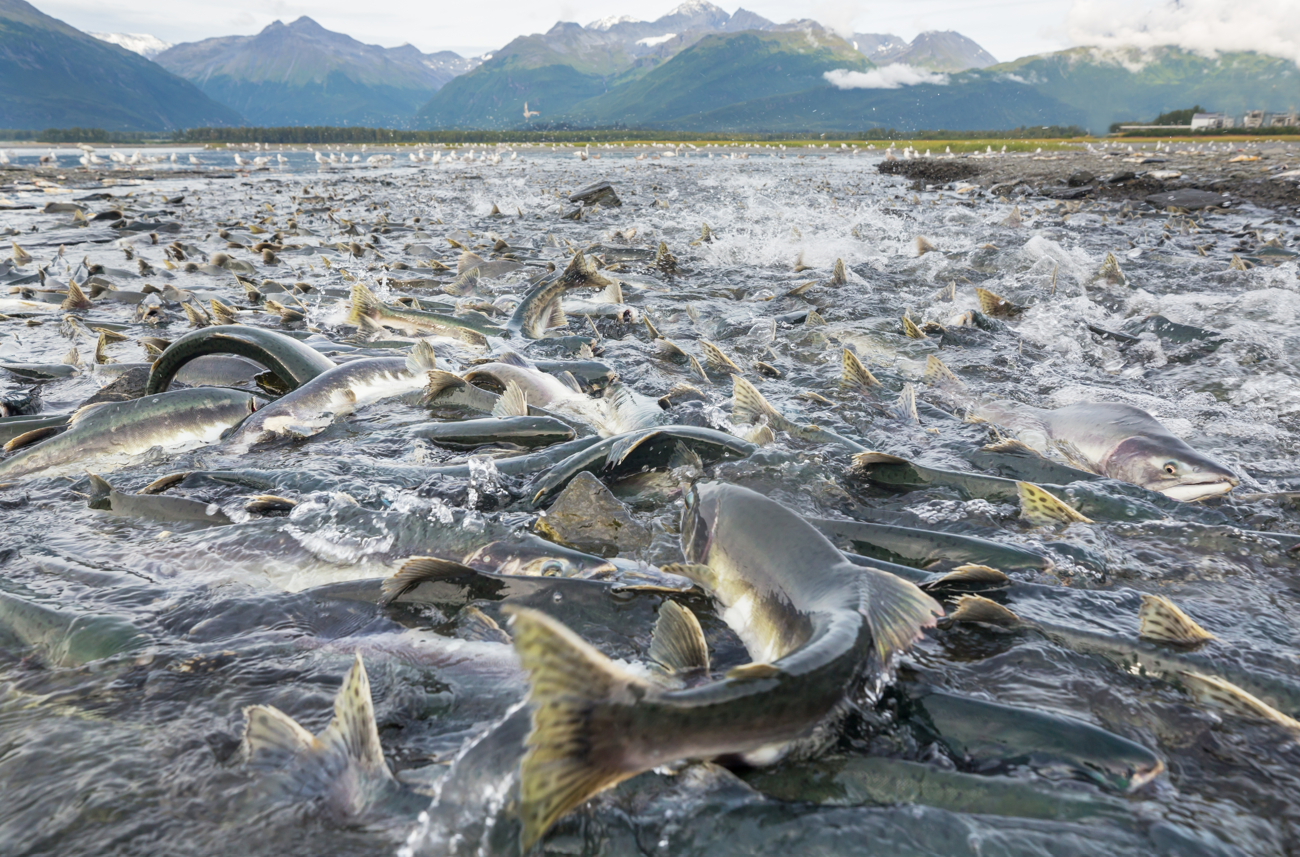Salmon live absolutely wild lives. An unfortunate portion will end up in the jaws of a bear or sliced up in a sushi restaurant, but many will spend their existence embarking on one of the most ambitious animal migrations in the natural world. This is because they are anadromous.
Anadromous fish are those that migrate from freshwater rivers to the ocean, then go back to spawn in the freshwater streams where they were born. Along with salmon, the term describes a host of other fish, including certain species of smelt, sturgeon, lamprey, catfish, and trout.
The opposite is known as catadromous, in which fish live most of their lives in freshwater but migrate into saltwater to spawn.
The risky migration of salmon
Salmon are perhaps the best-known example of an anadromous fish. They begin life in quiet freshwater streams, where tiny fry hatch and grow into smolts. When ready, they embark on a dangerous journey to the ocean, dodging predators, navigating dams, and adapting to saltwater life. Once they make it to the vast sea, they grow for years, traveling thousands of miles and facing constant threats. Driven by instinct, they return, often to the very stream where they were born.
This requires them to battle upstream currents and leap waterfalls, risking it all to reproduce. Most die soon after – talk about going out with a bang. Their bodies decompose and help enrich the ecosystem with nutrients, completing a powerful cycle of life.

A mass spawning of salmon in an Alaskan river.
Image credit: Galyna Andrushko/Shutterstock.com
High risk, high reward
The big question is: why? As strategies for survival and reproduction go, this is an incredibly long-winded, complex, risky, and exhausting process. Why go to all this effort when you could have a chilled-out life in a quiet stream?
One theory is that it allows fish to benefit from the “best of two worlds”, both freshwater and the sea. The young fish can grow up in the relatively quiet and safe freshwater streams. The cold, oxygen-rich water in streams is ideal for developing eggs, plus the gravel beds offer protection and stop them from being washed away or smothered.
Once fully grown, they can then benefit from the ocean, which offers vastly more food and resources, allowing them to grow much larger and stronger than they could in rivers. It’s essentially a “high risk, high reward” way of living.
However, this complex lifestyle does mean it is vulnerable to disruptions – and big shake-ups are coming.
Climate change is already impacting salmon runs
Research has shown that climate change is impacting salmon migration in unpredictable ways. In 2023, scientists at NOAA analyzed data from 66 salmon populations in North America over 70 years and found that the timing of many species’ migrations has substantially changed in the last few decades. The changes appear to be in response to warming temperatures and could significantly impact their chances of survival.
“When those changes are difficult to predict, a precautionary management approach is important for the long-term conservation of ecologically, culturally, and economically important species, such as Pacific salmon,” Dr Jonathan Moore, a co-author of the study from The Salmon Watersheds Lab at Simon Fraser University, said in a statement.
“Climate change is here, and it is changing salmon and their ecosystems. Many of these changes are going to be unpredictable, which calls for protecting both salmon biodiversity and their habitats.”
Source Link: Salmon Make Some Of The Most Epic Migrations In Nature. Why Do They Bother?